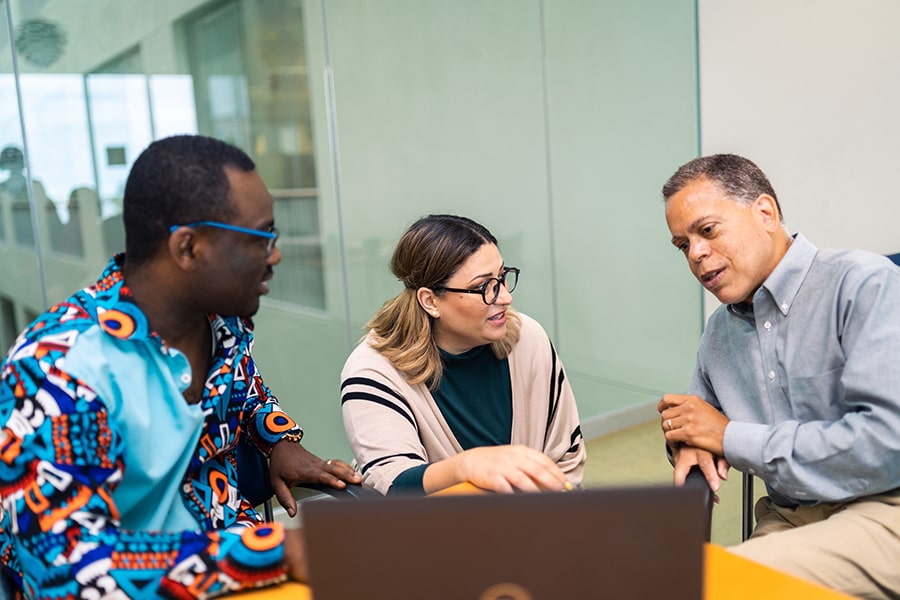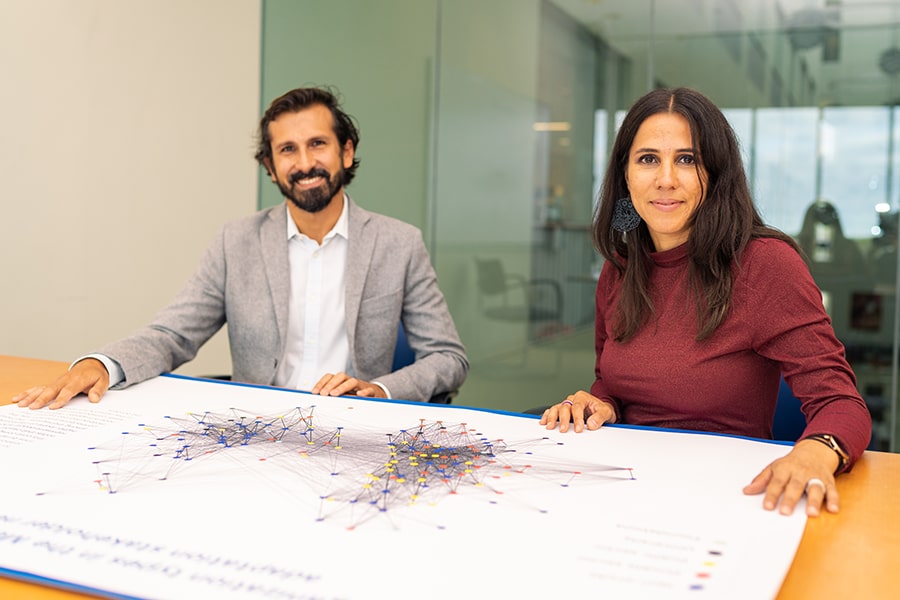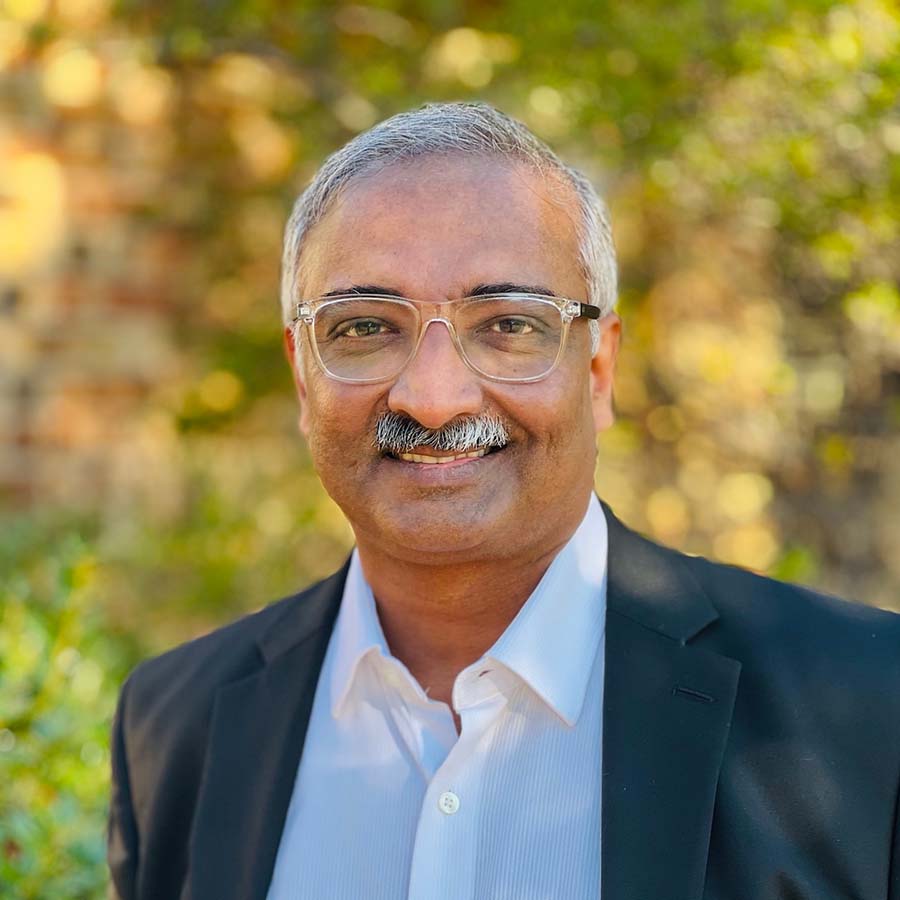- Home
- News
- Recent News
- Beyond Survival: Sustainable Solutions Lab’s Drive
Beyond Survival: Sustainable Solutions Lab’s Drive for Transformative Adaptation
Step into the transformative world of the Sustainable Solutions Lab (SSL), where cutting-edge transdisciplinary research meets action-driven solutions in the fight against climate change.

Our mission is clear: to spark transformative climate adaptation grounded in justice and equity. Spanning all schools and colleges and four institutes at our university, SSL brings together diverse perspectives to address the pressing challenges of our time.
From investigating the feasibility of a harbor-wide barrier system for Boston to uncovering the climate impacts on transient populations and mapping the climate adaptation stakeholder network in metro Boston, SSL's research extends far beyond academia. Our studies serve as blueprints for real-world resilience, guiding communities toward a more sustainable future. This commitment to practical solutions is evident in our diverse range of projects, from infrastructure resilience to workforce development
But SSL is more than just a research hub; it's a catalyst for change. Our Northeast Climate Justice Research Collaborative, led by Associate Director Gabriela Boscio Santos, empowers researchers to leverage their work to inform and shape policies that prioritize historically excluded communities. Through collaborative events and specialized training, we're nurturing a broad array of climate leaders equipped to drive transformative change.
Looking ahead, SSL is charting an ambitious path. With a planning grant from the National Science Foundation, our research director, Rosalyn Negrón, is spearheading the Climate Inequality and Integrative Resilience (CLIIR) Center, an initiative for transdisciplinary research on climate migration, climate and health, and Indigenous knowledge and governance, supported by cross-cutting research on decision support systems. The CLIIR team is exploring emerging approaches to resilience research and conceptualizing SSL’s research agenda to set the foundation for a future center grant application.
Another exciting new project seeks to facilitate access to technical assistance and funding for water infrastructure in vulnerable communities that usually find it difficult to get to the funding table for such initiatives. SSL collaborates with the New England Environmental Finance Center on this U.S. Environmental Protection Agency (EPA)-funded project, which seeks to undertake community-engaged action research.

Antonio Raciti, PhD, and Rosalyn Negrón, PhD, with outputs from their research, “Connecting for Equitable Climate Adaptation: Mapping Stakeholder Relationships in Metro Boston.” Image By: Jesse Wang Photography.
SSL continues to expand its impact through groundbreaking projects and partnerships. A $2 million collaboration with MassDOT focuses on innovative research to enhance the climate resilience of rail embankments. The Barr Foundation has committed $700,000 over two years to develop community-engaged action research programs, further strengthening SSL’s commitment to participatory approaches. Additionally, the Liberty Mutual Foundation’s forthcoming $540,000 grant over three years will support the new “Climate Careers Curricula (C3) Initiative,” aimed at improving access to green economy jobs for youth in disadvantaged communities.
As executive director, I'm committed to breaking down barriers and empowering communities to drive their own adaptation efforts. Drawing on my experience in international development and climate adaptation research in coastal Louisiana, I understand the importance of addressing the root causes of vulnerability. At SSL, we believe that true resilience goes beyond survival; it's about thriving in the face of adversity.
But our vision extends far beyond our university walls. Climate change is forcing us to reconsider prevailing paradigms of our relationship with nature and each other. This is a time for communities worldwide to learn from one another. We hope to bring the world to SSL and take SSL to the world by fostering collaborative research and knowledge exchange across the region, the United States, and the world. Together, we can accelerate the transition to a more equitable, just, and sustainable future.

Executive Director, Sustainable Solutions Lab